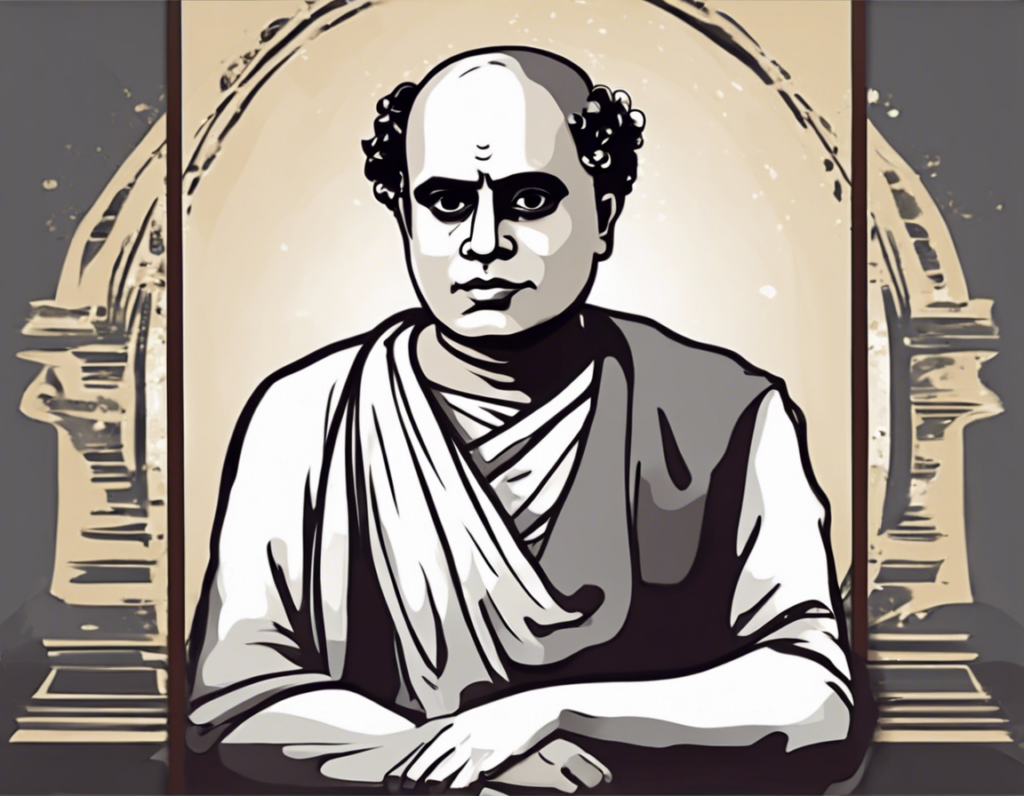Ishwar Chandra Vidyasagar, a key figure in the Indian Renaissance movement of the 19th century, left an indelible mark on Indian society through his tireless work in the fields of education, women’s rights, and social reform. Born on September 26, 1820, in West Bengal, Vidyasagar’s contributions spanned a wide range of disciplines, making him a revered figure in Indian history. Let’s dive deeper into the legacy of this remarkable individual and explore the impact he had on Indian society.
Early Life and Education
Born as Ishwar Chandra Bandyopadhyay, Vidyasagar’s early life was marked by financial hardships. Despite facing adversity, he displayed a keen interest in learning and excelled in his studies. His passion for education led him to become a key figure in the development of modern education in Bengal. Vidyasagar’s dedication to learning served as a driving force behind his numerous accomplishments in the field of education.
Contributions to Education
Ishwar Chandra Vidyasagar played a pivotal role in championing education for all, irrespective of gender or social status. He worked tirelessly to promote the spread of education in India by advocating for the introduction of a vernacular language (Bengali) as the medium of instruction in schools. This move was instrumental in making education more accessible to the masses.
Vidyasagar’s most significant contribution to education was his efforts in promoting the education of women. In a time when female education was not given much importance, he established schools for girls and fought against societal norms to ensure that women had access to learning opportunities. His belief in gender equality and women’s empowerment continues to inspire generations.
Social Reforms
Apart from his work in education, Vidyasagar was a staunch advocate for various social reforms. He campaigned against prevalent social evils such as child marriage, sati (widow burning), and polygamy. His progressive outlook and unwavering dedication to social justice made him a beacon of hope for those fighting against oppressive social customs.
Vidyasagar’s efforts to eradicate sati practice were particularly noteworthy. He spearheaded the movement to abolish this cruel tradition, ultimately leading to the enactment of the Bengal Sati Regulation, 1829. His advocacy for social reforms laid the groundwork for a more equitable and just society.
Literary Contributions
In addition to his social and educational endeavors, Ishwar Chandra Vidyasagar was a prolific writer and scholar. He made significant contributions to Bengali literature through his translations, original works, and commentaries. His deep understanding of the language and culture enabled him to enrich Bengali literature with timeless classics.
Vidyasagar’s commitment to education and language reform is evident in his literary works, which aimed to make knowledge more accessible to the common people. His dedication to uplifting the masses through literature reflects his broader vision of societal transformation through education and enlightenment.
Legacy and Impact
Ishwar Chandra Vidyasagar’s legacy continues to endure through the institutions he established, the social reforms he championed, and the lives he touched. His unwavering commitment to education, women’s rights, and social justice serves as a guiding light for future generations seeking to create a more inclusive and equitable society.
Vidyasagar’s fearless pursuit of truth, justice, and equality exemplifies the essence of a true reformer. His teachings and principles resonate with modern-day activists and reformers striving to address social inequality and injustice. As we reflect on his life and work, we are reminded of the power of one individual to ignite change and inspire progress in society.
Frequently Asked Questions (FAQs)
1. What were Ishwar Chandra Vidyasagar’s main contributions to Indian society?
Ishwar Chandra Vidyasagar made significant contributions to Indian society in the fields of education, women’s rights, and social reform. He played a key role in promoting education for all, advocating for the education of women, and spearheading social reforms to eradicate oppressive practices.
2. How did Ishwar Chandra Vidyasagar promote women’s education in India?
Vidyasagar established schools for girls and fought against societal norms to ensure that women had access to learning opportunities. He believed in gender equality and women’s empowerment, which drove his efforts to promote women’s education in India.
3. What social reforms did Ishwar Chandra Vidyasagar advocate for?
Ishwar Chandra Vidyasagar campaigned against prevalent social evils such as child marriage, sati (widow burning), and polygamy. He played a pivotal role in the movement to abolish the sati practice, leading to the enactment of the Bengal Sati Regulation in 1829.
4. How did Ishwar Chandra Vidyasagar contribute to Bengali literature?
Ishwar Chandra Vidyasagar was a prolific writer and scholar who made significant contributions to Bengali literature through his translations, original works, and commentaries. His deep understanding of the language and culture enriched Bengali literature with timeless classics.
5. What is Ishwar Chandra Vidyasagar’s enduring legacy?
Ishwar Chandra Vidyasagar’s legacy endures through the institutions he established, the social reforms he championed, and the lives he touched. His commitment to education, women’s rights, and social justice serves as a beacon of hope for those striving to create a more inclusive and equitable society.
